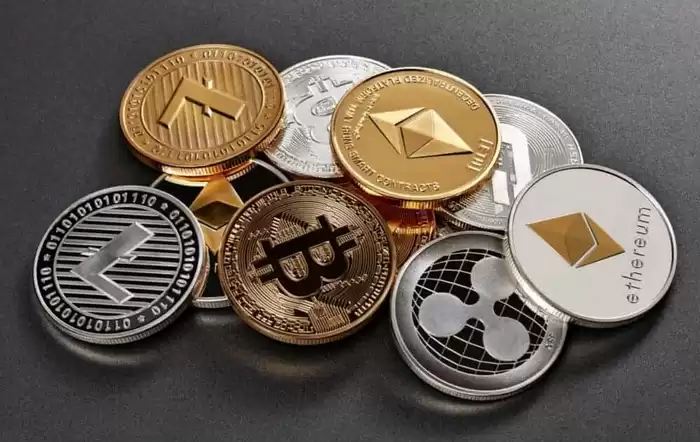-
 bitcoin
bitcoin $87959.907984 USD
1.34% -
 ethereum
ethereum $2920.497338 USD
3.04% -
 tether
tether $0.999775 USD
0.00% -
 xrp
xrp $2.237324 USD
8.12% -
 bnb
bnb $860.243768 USD
0.90% -
 solana
solana $138.089498 USD
5.43% -
 usd-coin
usd-coin $0.999807 USD
0.01% -
 tron
tron $0.272801 USD
-1.53% -
 dogecoin
dogecoin $0.150904 USD
2.96% -
 cardano
cardano $0.421635 USD
1.97% -
 hyperliquid
hyperliquid $32.152445 USD
2.23% -
 bitcoin-cash
bitcoin-cash $533.301069 USD
-1.94% -
 chainlink
chainlink $12.953417 USD
2.68% -
 unus-sed-leo
unus-sed-leo $9.535951 USD
0.73% -
 zcash
zcash $521.483386 USD
-2.87%
What is Gas? Understand Gas in the cryptocurrency world in one minute
Gas facilitates transactions on a blockchain network by incentivizing validators to prioritize and verify them promptly, while also preventing excessive transaction volumes and generating revenue for validators.
Oct 22, 2024 at 12:41 am

In the world of cryptocurrencies, Gas refers to a fee paid to facilitate transactions on a blockchain network. It compensates validators or miners for the computational resources they use to process and verify transactions.
2. Purpose of GasGas is essential for three primary reasons:
- Transaction Processing: Gas incentivizes validators to prioritize transactions, ensuring that they are processed and confirmed promptly.
- Scarcity Control: Limiting the supply of gas prevents excessive transaction volumes that can clog the network.
- Revenue Generation: Gas fees generate income for validators, who are rewarded for their work in maintaining the blockchain.
The amount of gas required for a transaction varies depending on:
- Network Congestion: Higher congestion typically increases gas fees as transactions compete for limited network resources.
- Transaction Complexity: Complex transactions, such as smart contract calls, require more gas than simple transfers.
- Block Time: If transactions are processed faster, gas fees tend to be higher since validators must allocate more resources.
Gas fees are typically priced in the native cryptocurrency of the blockchain network. The user sets the gas price, which determines the priority of their transaction. Higher gas prices lead to faster confirmation times.
5. Gas OptimizationTo minimize gas fees, users can:
- Schedule Transactions: Avoid sending transactions during periods of high network congestion.
- Use Alternative Blockchains: Explore other blockchains with lower gas fees, such as Solana or Avalanche.
- Consider Off-Chain Solutions: Utilize Layer 2 solutions like Loopring to reduce on-chain costs while maintaining transaction security.
Disclaimer:info@kdj.com
The information provided is not trading advice. kdj.com does not assume any responsibility for any investments made based on the information provided in this article. Cryptocurrencies are highly volatile and it is highly recommended that you invest with caution after thorough research!
If you believe that the content used on this website infringes your copyright, please contact us immediately (info@kdj.com) and we will delete it promptly.
- Crypto Coaster: Bitcoin Navigates Intense Liquidation Hunt as Markets Reel
- 2026-02-01 00:40:02
- Rare £1 Coin Error Could Be Worth £2,500: Are You Carrying a Fortune?
- 2026-02-01 00:45:01
- Ripple, Banks, & Cash: The Digital Treasury Revolution and Washington's New Blueprint
- 2026-01-31 22:40:02
- Bitcoin's High-Wire Act: Leverage Ratio Spikes, Volatility Looms on the Horizon
- 2026-01-31 22:20:02
- Spur Protocol's SON Token: A Listing Saga and Its Murky Price Outlook
- 2026-01-31 22:15:04
- Bitcoin Price Breakdown Looms as Institutions Pull Billions: BTC Faces Critical Juncture
- 2026-01-31 22:10:07
Related knowledge

What is the future of cryptocurrency and blockchain technology?
Jan 11,2026 at 09:19pm
Decentralized Finance Evolution1. DeFi protocols have expanded beyond simple lending and borrowing to include structured products, insurance mechanism...

Who is Satoshi Nakamoto? (The Creator of Bitcoin)
Jan 12,2026 at 07:00am
Origins of the Pseudonym1. Satoshi Nakamoto is the name used by the individual or group who developed Bitcoin, authored its original white paper, and ...

What is a crypto airdrop and how to get one?
Jan 22,2026 at 02:39pm
Understanding Crypto Airdrops1. A crypto airdrop is a distribution of free tokens or coins to multiple wallet addresses, typically initiated by blockc...

What is impermanent loss in DeFi and how to avoid it?
Jan 13,2026 at 11:59am
Understanding Impermanent Loss1. Impermanent loss occurs when the value of tokens deposited into an automated market maker (AMM) liquidity pool diverg...

How to bridge crypto assets between different blockchains?
Jan 14,2026 at 06:19pm
Cross-Chain Bridge Mechanisms1. Atomic swaps enable direct peer-to-peer exchange of assets across two blockchains without intermediaries, relying on h...

What is a whitepaper and how to read one?
Jan 12,2026 at 07:19am
Understanding the Whitepaper Structure1. A whitepaper in the cryptocurrency space functions as a foundational technical and conceptual document outlin...

What is the future of cryptocurrency and blockchain technology?
Jan 11,2026 at 09:19pm
Decentralized Finance Evolution1. DeFi protocols have expanded beyond simple lending and borrowing to include structured products, insurance mechanism...

Who is Satoshi Nakamoto? (The Creator of Bitcoin)
Jan 12,2026 at 07:00am
Origins of the Pseudonym1. Satoshi Nakamoto is the name used by the individual or group who developed Bitcoin, authored its original white paper, and ...

What is a crypto airdrop and how to get one?
Jan 22,2026 at 02:39pm
Understanding Crypto Airdrops1. A crypto airdrop is a distribution of free tokens or coins to multiple wallet addresses, typically initiated by blockc...

What is impermanent loss in DeFi and how to avoid it?
Jan 13,2026 at 11:59am
Understanding Impermanent Loss1. Impermanent loss occurs when the value of tokens deposited into an automated market maker (AMM) liquidity pool diverg...

How to bridge crypto assets between different blockchains?
Jan 14,2026 at 06:19pm
Cross-Chain Bridge Mechanisms1. Atomic swaps enable direct peer-to-peer exchange of assets across two blockchains without intermediaries, relying on h...

What is a whitepaper and how to read one?
Jan 12,2026 at 07:19am
Understanding the Whitepaper Structure1. A whitepaper in the cryptocurrency space functions as a foundational technical and conceptual document outlin...
See all articles





















![THIS IS THE HARDEST COIN TO GET [POLY DASH] THIS IS THE HARDEST COIN TO GET [POLY DASH]](/uploads/2026/01/31/cryptocurrencies-news/videos/origin_697e0319ee56d_image_500_375.webp)




















































